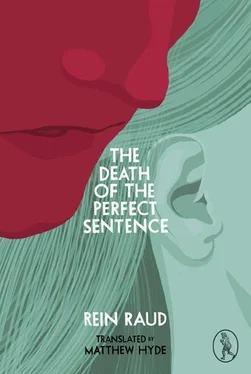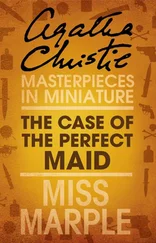When the big boss walks past, the wise peasant bows low and quietly farts.
(Ethiopian proverb)
At that moment Alex didn’t have any problem agreeing to Tapani’s request, particularly since he was in a great hurry. Fortunately he’d arrived back at the hotel room just a few moments before Svyatoslav Grigoryevich phoned from the ground floor. But now he was in Estonia, and after a short drive from the hotel to the ministry he was sitting at the far end of a long table, with a cup of weak coffee and a flaky biscuit with a dot of chocolate on top. By now he’d started to think that he may have agreed a little too hastily. Granted, no one had yet sought him out, but it did seem a little odd to be asked to deliver something from a complete stranger to someone else with whom he was only slightly acquainted. What if customs asked what it was? He didn’t even know himself. On the other hand, he now had a bit more experience of going through customs, and he hadn’t had any bother before. His blue official passport tended to have the desired effect on officials, especially if he was travelling as part of a delegation and his superiors were ahead of him in the queue. And anyway, Tapani seemed like a nice chap; surely there was no harm in doing a small favour for him.
They were sitting round the table, and a girl with dark bushy eyebrows handed out the folders containing the documents which explained what the Estonian side was proposing to contribute to the joint venture. When Alex arrived she leant down towards him and whispered into his ear: “There is a letter for you here as well,” and then hurried off.
She didn’t know for sure what was in the letter, but she was happy to carry out Uncle Valev’s request.
Alex had problems keeping up with what was being discussed at the meeting, but he still managed to restrain himself from opening the letter until he was back in the hotel room.
Written on a slip of paper was the following message: “Tomorrow at Kadriorg Palace, 1400, Oskar Meering’s Kalevipoeg statue.”
Is it not entirely natural that having arrived in Estonia from Leningrad, a Leningrad Paper Industry worker – and withdrawn bachelor – should be more interested in the local art museum and Peter the Great’s home than in Tallinn’s main department store? Even if he is the only one? At least that is what Alex was thinking as he left the Viru Hotel after the group lunch and boarded the tram. They’d already checked out of their rooms but there was still three hours left before they had to be at the port. It was a sunny day and there were plenty of people walking in the park, but once he’d entered the palace and bought a ticket he discovered that he was almost the only person in the exhibition rooms.
But of course this wasn’t exactly the Hermitage. The outskirts of Leningrad were as packed with palaces like this as an autumn forest is packed with mushrooms.
He carefully read the name tags of all the sculptures he could see, since he didn’t have a clue who or what this Kalevipoeg might be. This became tiresome, since it was already several minutes past two and he was worried that the person who was supposed to pass him the package would give up waiting. But as he walked past the sockknitting old granny and came to a standstill in the middle of the room he simultaneously realised two things: that the whopping great stone man in the corner of the room must be the Kalevipoeg he was looking for, and that no one was waiting for him there.
Why was that?
He walked up to the sculpture to make sure that this was indeed the right Kalevipoeg. Yes, there was the name Oskar Meering, 1890-1949. What next?
If he hadn’t been so sharp-sighted then he might not have noticed the tiny package at all.
Hmm.
As I write these words my thoughts continually return to the same subject: the divide between two different worlds. For my children Soviet Estonia is like a distant planet. That’s fine. I understand why, and it’s better that way. Buying butter and vodka with rationing coupons is as far removed from today’s everyday experience as the Second World War was for me during my childhood.
But those who do remember don’t need much to bring that period back to life for them, together with all its sounds and smells, albeit fainter now. People who weren’t there want more. And maybe they’re disappointed when they don’t see what they expect to see: pictures of Lenin the size of buildings, shops with empty shelves, and Soviet soldiers on the streets, smashing up the violin belonging to the little boy in glasses.
There were pictures like that, but we only saw them a couple of times a year, on the Communist public holidays. And neither were the shelves empty, it was more that no one wanted to buy any of the stuff which was available. It was true that you could only get hold of cars and other big items through work and waiting lists, or by paying twice as much (the “market price”), which the majority of people couldn’t afford. But as far as I remember those wretched coupons were only around for a couple of years, when the regime was already on its last legs. As for smashed violins, you can see them in Soviet films, although they tended to depict the fascists doing the smashing.
Of course the Russian soldiers got up to all sorts of stuff here as well. And it wasn’t just them. I recall one time when I was coming home on one of those dark winter nights after a school party – I must have been twelve or at least at the age when we had dancing at our parties – my hair was long, much to my father’s consternation, and I was walking back carrying a plastic bag full of records. They were compilations of big band music performed by the James Last Orchestra and released by the Soviet Melodiya company’s Riga studio: my friends and I thought that the music was very cool, and those records weren’t at all easy to get hold of. At that time there was a Russian-language maritime college next to our house, and the drunken would-be sailors often made a racket round the neighbourhood. They weren’t really genuine “occupiers”, like the soldiers, but they still wore naval uniforms. Anyway, on this occasion I was walking home down the empty street when one of them approached me and, without much ado, grabbed hold of my throat and pushed me up against the wall.
“Now then, let’s see what you’ve got there.”
“I haven’t got any money on me,” I replied, “please let me go.”
“No, no. Let’s see what you’ve got there,” he said.
At that moment I truly believed that he wanted to take my records off me (maybe that says more about the particular historical period than anything else). But then, through his glazed expression came the dawning realisation that despite my long hair I wasn’t actually a girl. And so he let me go and staggered onwards, while I went in the opposite direction, shaking.
To tell the truth, one can’t say that this episode was unique to the Soviet Union. A drunken yob is a drunken yob whether or not he’s wearing a foreign uniform. But back then I naturally held the Kremlin directly responsible for that brutish behaviour.
In the 1970s we took pride in believing that here in Estonia we were more cultured than in Russia, and we never normally had any reason to feel ashamed. In those days we were a cultural vanguard and not the backwater we are today. True, I know plenty of people who still feel disgusted when they see any kind of Soviet designs, because they are permeated with negative associations. And vice versa: on one of my first trips to Sweden, at roughly the same time as the events in this novel, I came across a shop selling fashionable clothes bearing perestroika slogans, amongst them was even a red cap with the letters “KGB” written on it in yellow. Evidently someone wanted such things.
Читать дальше












